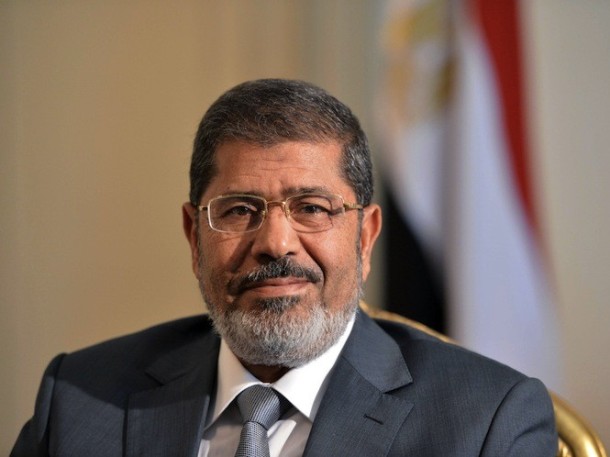
President Mohamed Morsi’s constitutional declaration issued on August 12 has sparked an extensive debate on a number of legal and political points. A key question in the midst of this discussion is whether the president has the right to issue new constitutional declarations or amend existing decrees.
Some are under the impression that the President of the Republic does not have the right to issue constitutional declarations. This is due to the belief that the Supreme Council of the Armed Forces (SCAF) alone holds that right, after assuming both executive and legislative powers when former president Hosni Mubarak stepped down. They also believe the elected president is not permitted to exercise constitutional legislative authority, as he was elected solely as the head of the executive branch. This argument does not hold, and the following will demonstrate that not only does the President of the Republic have this authority, but we are obliged to entrust him with it.
There is no disagreement that there must be a constitutional framework to govern the administration of the state and regulate its activity, whether it is a permanent constitution or a temporary one. In a vacuum, however, where the constitution does not contain any text establishing who has the authority to amend it and what procedures are to be followed – as is the current case in Egypt – ‘de-facto authority’ comes into play. This means that the executive authority in the country is granted constitutional legislative power to issue new or amend existing constitutional declarations.
To suggest otherwise – that there is no authority in the state that has the right to carry out constitutional declarations in anticipation of a new constitution that establishes this authority – would subject public life to total paralysis.
In February 2011, the political authority shifted to SCAF without any consideration for Egypt’s 1971 constitution. As a result, we were faced with a situation in which the legal value of the existing constitution had collapsed. From February 2011 up until June 2012, propped by de facto authority and revolutionary legitimacy, SCAF issued several constitutional declarations, with the last one issued on June 17 2012, on the pretext of necessity and organizing the affairs of the country.
With a democratically elected president in place, supreme political authority was passed on to Morsi on June 30, but without any change in the constitutional structure of the Egyptian state. That change will only come about with the drafting of a new and permanent constitution. The state continues to be regulated by temporary constitutional declarations, devoid of any text establishing amendment procedures, while the major and constant element remains: the inevitability that the political authority should make constitutional changes that meet society’s immediate needs. In this case, is it correct, both legally and politically, to say that the President of the Republic does not have the right to issue constitutional declarations, bearing in mind that the former ‘president’ (SCAF) was entrusted with de facto authority, whereas the current president was entrusted with that authority by the people?
In many countries facing a similar situation regarding regular legislation, in the event of an absent parliament, whether due to annual recess or dissolution, legislative authority is transferred to the head of the executive branch until the return of parliament. In this case, one cannot expect legislative power to be put on hold, with no laws issued until the power with inherent jurisdiction returns to exercise its role. This would only serve to obstruct the interests of the country. In such cases, the head of the executive power must exercise legislative authority by issuing laws, with certain conditions or checks on his power: specifically that the legislation issued must be for urgent and necessary matters. As a result, when constitutional legislative power – as being measured to the regular legislative power – is absent due to the lack of a relevant text in the constitutional declaration, the right to issue further declarations rests in the hands of the President of the Republic until a new constitution is put in place, which brings with it constitutional legitimacy.
Yussef Auf is an Egyptian judge and 2012 Humphrey Fellow at American University’s Washington College of Law. He is currently pursuing a PhD in Constitutional Law and Political Systems at Cairo University.
Photo Credit: Khaled Desouki/AFP
Image: MorsiAFP.jpg

